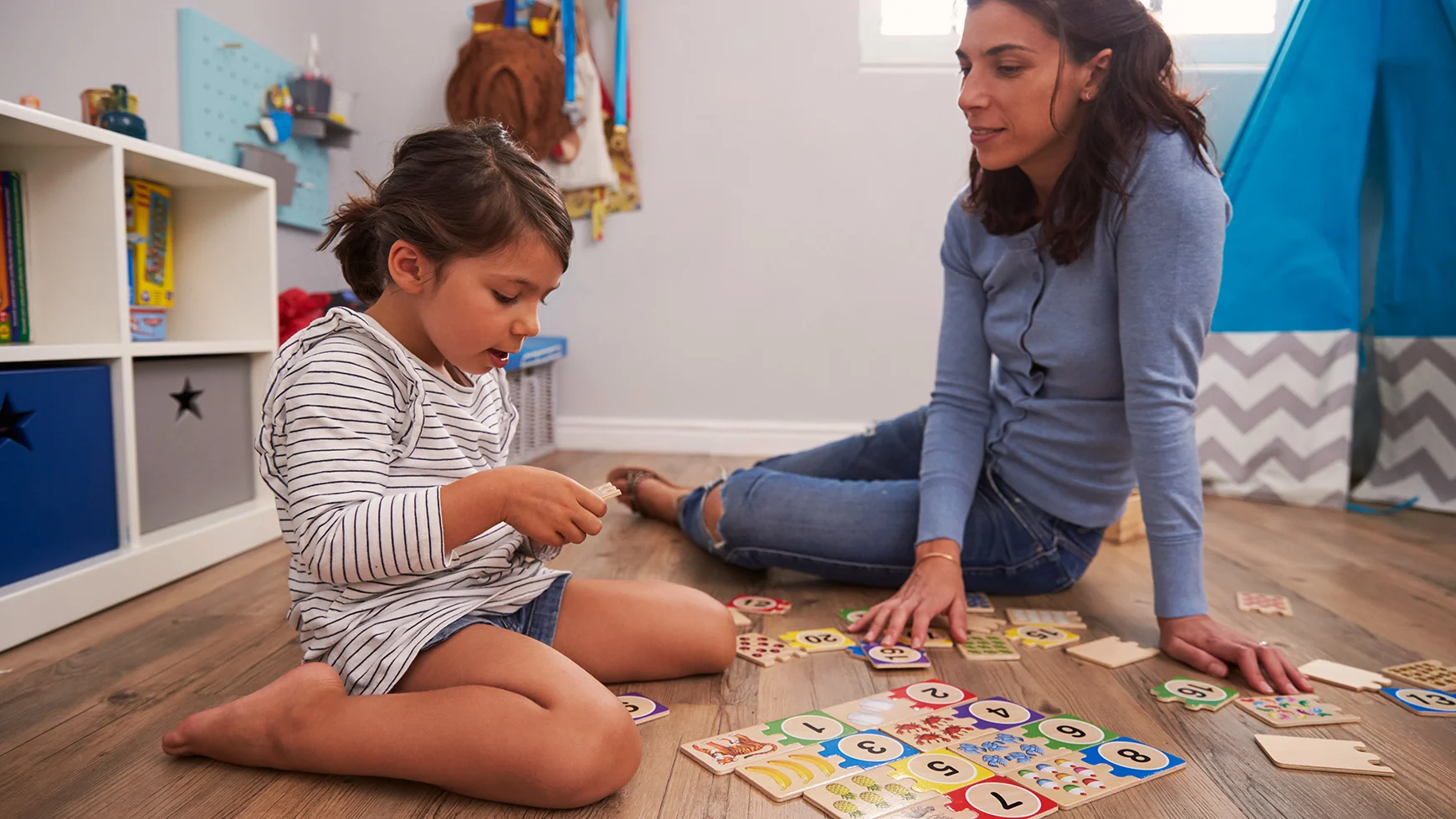How to help your child with math

At a glance
Some kids need extra help and encouragement to get better at math.
There are lots of ways you can help your child improve math skills at home.
Having trouble with math doesn’t mean a child isn’t smart.
Many kids (and adults) have trouble with math. And for some people, math causes a lot of anxiety. When math is a struggle, how can you help your child get better at it?
Helping with math isn’t always easy, especially since the way they teach math is different than it used to be. But even if you’re not the best at math, there are many ways you and the school can help your child improve. Here are tips.
How to help with math at home
If you feel lost or frustrated trying to help your child with math, you’re not alone. Most parents and caregivers haven’t taken math classes in a while. And schools use new methods to teach it now. The more familiar you are with the new ways, the easier it becomes to help.
Here are some examples of “new” math problems to help you get your bearings. You can also use tips to help with tricky math homework.
Even if kids struggle with math, it doesn’t mean they’re “bad” at it. Even good math students can have a hard time with certain parts of math. Kids need different skills for different subjects, so they may need support in one or more of these skills.
Even different types of math problems within a subject can require different skills. For instance, some kids may be great with math facts but struggle with word problems.
For some kids, the biggest challenge is math anxiety. Whether or not they have trouble with math itself, they feel anxious about doing the work or taking math tests. They may doubt they’re good at math even when they are. And their fear of failure can actually get in the way of doing well.
There are lots of stress-free and fun ways to help with math at home. Here are just a few:
Use sports, like football, to reinforce math concepts.
Play board games that help young kids build math skills.
Cook and bake together.
There are also inexpensive tools you can use to help make math easier for your child.
Discover items around the house that can be used as math tools.
Teachers have great strategies for helping kids learn math. Here are a few teacher tips to try:
Use an anchor chart to help with multiplication.
Use number lines to help your child compare fractions.
Play a warm-up game to get your child ready for math homework.
A popular way to help kids learn math is by engaging various senses. Teachers use sight, hearing, touch, and movement to help kids understand what numbers and symbols mean. (Teachers use this approach with reading and writing, too.)
It can be hard for kids who struggle with math to use abstract thinking to do math problems. For example, they might have trouble understanding amounts, like the fact that 10 cents is more than five cents.
Technology can also be a great tool to help with math. There are inexpensive or even free tech tools for math, like apps, Chrome tools, and software. These programs not only help build skills. They can also reduce the challenges and frustration kids feel.
Frustration is a common problem for kids who struggle in school, whether it’s in math or another area. One of the best things you can do is talk about what that feels like, and share times when you’ve also felt frustrated by your own challenges. Tell your child that everyone struggles with something, and there are ways to get better at math.
How the school can help kids get better at math
When kids have trouble with math, there are lots of things schools can do to help. There are specific ways of teaching math that can help kids build skills. And schools can use supports called that make it easier for kids who are struggling.
To get this type of help from the school, you’d need to have your child evaluated. A free school evaluation can tell you exactly what your child is struggling with, so you can get and give the right type of help.
Use this checklist of questions to ask the school about math instruction.
Learn terms to know if your child has trouble with math.
Your child’s teacher is a great source of information and help, too. Ask the teacher if there are strategies that help in the classroom that you can try at home.
Working with the school can help your child develop what’s known as a growth mindset. That means kids believe their skills can improve with work and support. And learn how setting a “competence anchor” can help your child feel more confident about math.
Key takeaways
Ask your child’s teacher for tips you can try at home.
Making math fun can help kids feel less anxious.
Getting familiar with new ways of teaching math makes it easier to help your child.